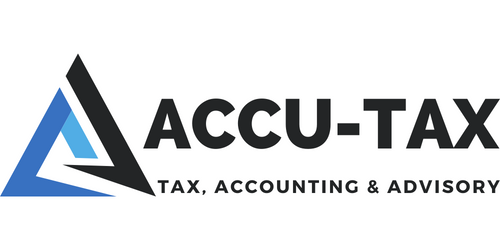What Happens After the IRS Accepts Your Offer in Compromise (OIC)
After the IRS accepts your Offer in Compromise (OIC), several important post-acceptance requirements take effect. These rules ensure you fulfill the terms of the agreement and remain compliant with your tax obligations.
This guide explains everything that happens after an OIC is approved, including payment procedures, the five-year compliance period, treatment of tax refunds, tax lien status, IRS monitoring, default consequences, and steps to remain in good standing.
1. Payment Requirements
Fulfilling the Offer Terms
Once your OIC is accepted, you must pay the agreed amount according to the schedule outlined in your offer. Depending on the type of offer, payments may be:
- Lump sum: Five or fewer payments made within five months of acceptance.
- Periodic payments: Made over a period of six to twenty-four months.
The IRS provides written instructions specifying how and where to send payments. It is crucial to make each payment on time and for the correct amount.
Application of Payments
The IRS generally applies payments to the oldest tax liability first, unless your OIC specifies otherwise. These payments only apply to the tax periods and amounts covered under the accepted offer.
2. Five-Year Compliance Period
Ongoing Compliance
After acceptance, you must remain fully compliant with all tax obligations for five years or until the offer is paid in full—whichever is longer. During this period, you are required to:
- File all federal tax returns on time.
- Pay all future taxes in full and on time, including estimated tax payments and federal tax deposits for businesses.
Failing to meet these conditions is considered a breach of the OIC agreement and can lead to default.
Exception
If your offer was accepted based solely on Doubt as to Liability (DATL), the five-year compliance monitoring does not apply.
3. Treatment of Tax Refunds
Refund Recoupment
If your OIC was accepted before November 1, 2021, the IRS keeps any tax refund (including interest) due for the year your offer was accepted. This refund becomes part of your OIC payment.
For OICs accepted on or after November 1, 2021, the IRS no longer retains refunds for the year of acceptance.
Other Refunds
Refunds or overpayments for tax years not covered in your OIC may still be applied to other outstanding federal tax debts, as allowed by law.
4. Status and Release of Federal Tax Liens
Lien Status
A Notice of Federal Tax Lien (NFTL) usually remains in place until all OIC terms are satisfied. Once you pay the full offer amount and meet compliance requirements, the IRS typically releases the lien within 45 days after confirming final payment.
Sale of Property
If you sell property subject to a federal tax lien before the OIC is paid in full, the IRS may claim proceeds from that sale. This applies even if the amount exceeds the total OIC balance.
5. IRS Monitoring and Default
IRS Monitoring
The Monitoring Offer in Compromise (MOIC) unit oversees your compliance. The IRS tracks both payment progress and your adherence to filing and payment obligations during the five-year compliance period.
If you miss a payment or fail to file or pay taxes on time, the IRS will issue a potential default letter. You may receive a one-time extension—up to 120 days—to correct the issue.
Consequences of Default
If you default on your OIC, the IRS may:
- Reinstate your full original tax debt, minus any OIC payments already made.
- Refile or reinstate any previously released tax liens.
- Resume aggressive collection actions, including levies or wage garnishments.
Defaults do not carry appeal rights, but you can request reconsideration if the default occurred due to IRS error or circumstances beyond your control.
6. Steps to Remain in Good Standing
To keep your OIC in good standing and avoid default:
- Make all payments on time and in full.
- File every required federal tax return on time for five years.
- Pay all new taxes promptly, including estimated and payroll taxes.
- Respond quickly to IRS notices or correspondence.
If You Encounter Financial Difficulty
If you expect difficulty making a payment or meeting compliance obligations, contact the IRS immediately. You may qualify for a one-time extension (up to 120 days) to make a missed payment, provided no extension has been granted within the last 24 months.
If your financial situation changes significantly, you can request a modification of the OIC terms, but you must stay current on all filings and payments for your request to be considered.
7. Final Closure of the Offer
Completion of the OIC
After you’ve paid the full OIC amount, maintained compliance for five years, and satisfied any collateral agreements, the IRS will officially close your case. The agency will then update its records to show that the tax liabilities included in your offer are fully resolved.
Collateral Agreements
If your OIC included a collateral agreement, such as a future income provision, you must fulfill those additional terms before the IRS considers your OIC completely satisfied.
Summary of Post-Acceptance Requirements
| Category | Key Requirement |
|---|---|
| Payments | Must be made on time and in full per the OIC agreement. |
| Five-Year Compliance | File and pay all taxes on time for five years. |
| Refunds | IRS may keep the refund for the year of acceptance (if before Nov. 1, 2021). |
| Liens | Released after full payment and verified compliance. |
| Monitoring | IRS oversees compliance and payments through the MOIC unit. |
| Default | Results in reinstatement of full liability and renewed collection actions. |
| Good Standing | Stay current with all tax obligations and communicate proactively with the IRS. |
Conclusion
An accepted Offer in Compromise can provide tremendous relief by settling your tax debt for less than you owe. However, maintaining that relief requires strict adherence to all post-acceptance terms.
By making timely payments, filing accurate and on-time returns, and staying in communication with the IRS, you can ensure your OIC remains in good standing—and that your tax debt is permanently resolved.
If you’re unsure about your obligations or need help staying on track, Contact us who can guide you through the post-acceptance process.
References
[1] Offer in compromise FAQs | Internal Revenue Service
[2] Offer in Compromise – Taxpayer Advocate Service (TAS)
[3] Form 656 Booklet Offer in Compromise – Internal Revenue Service


